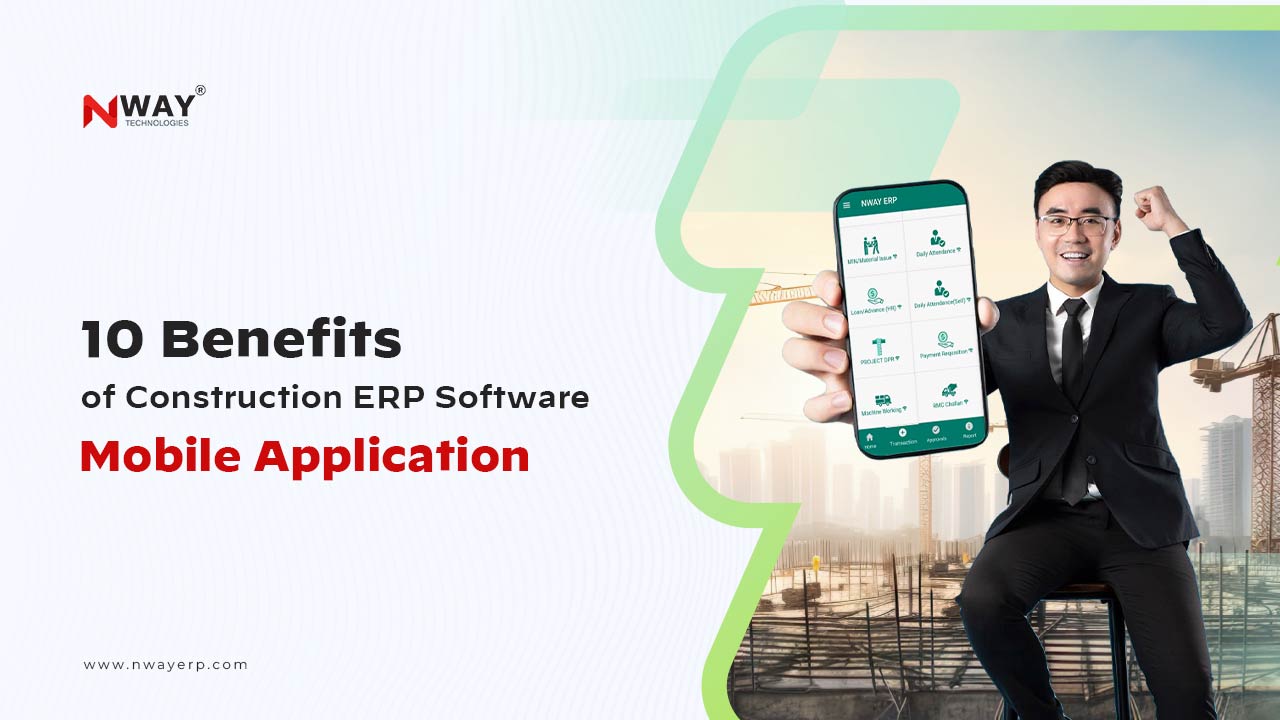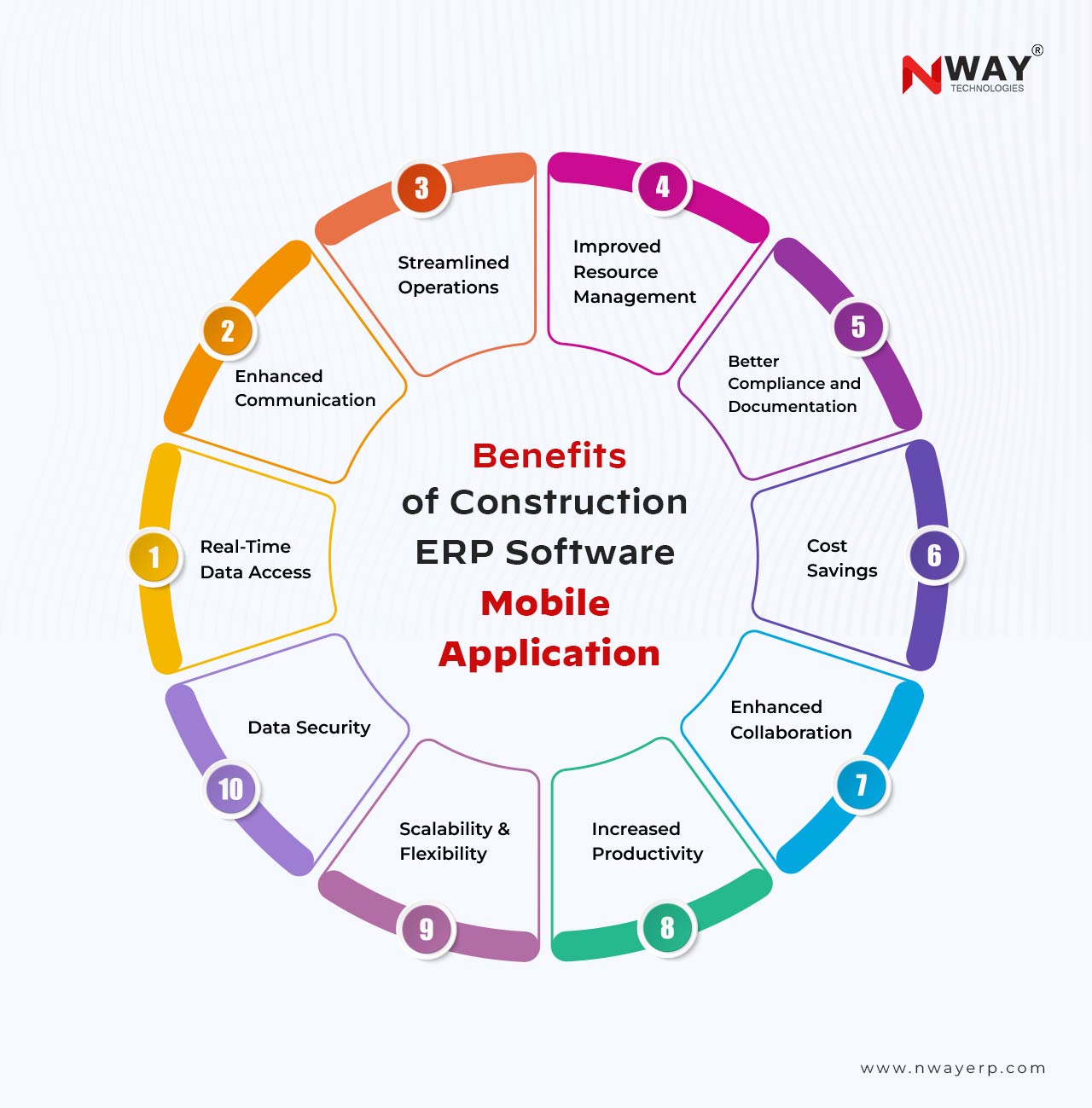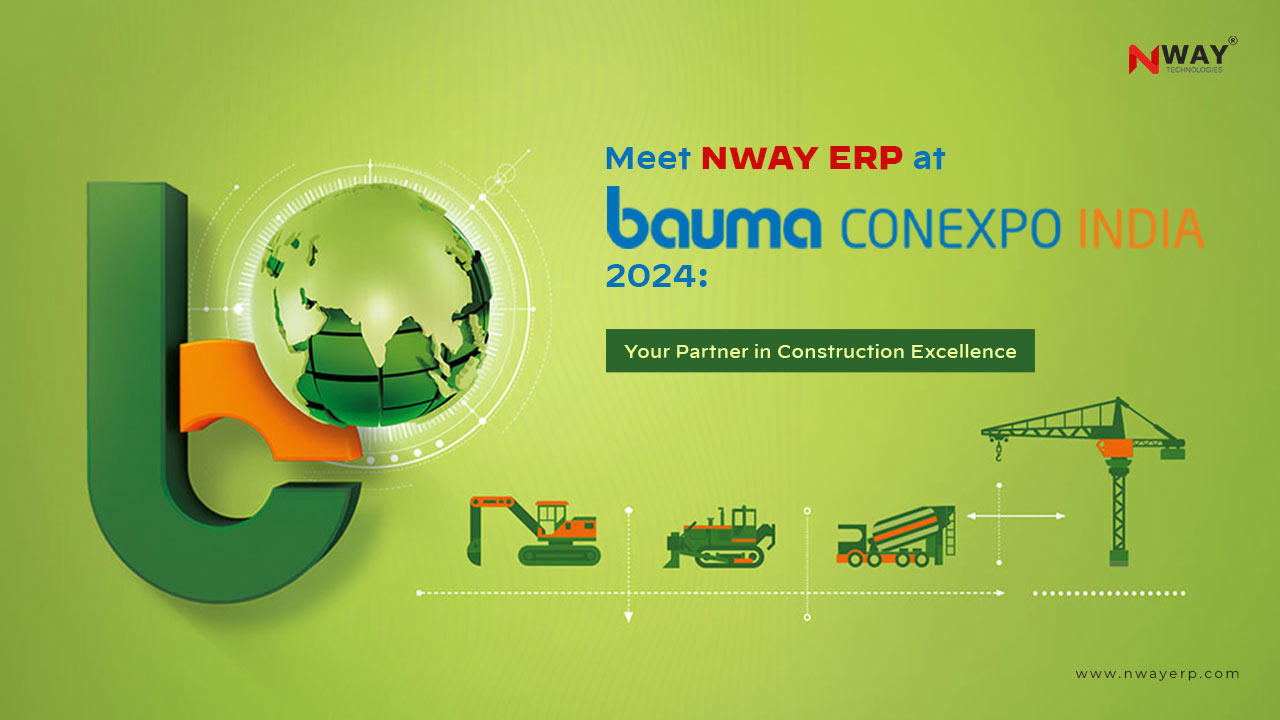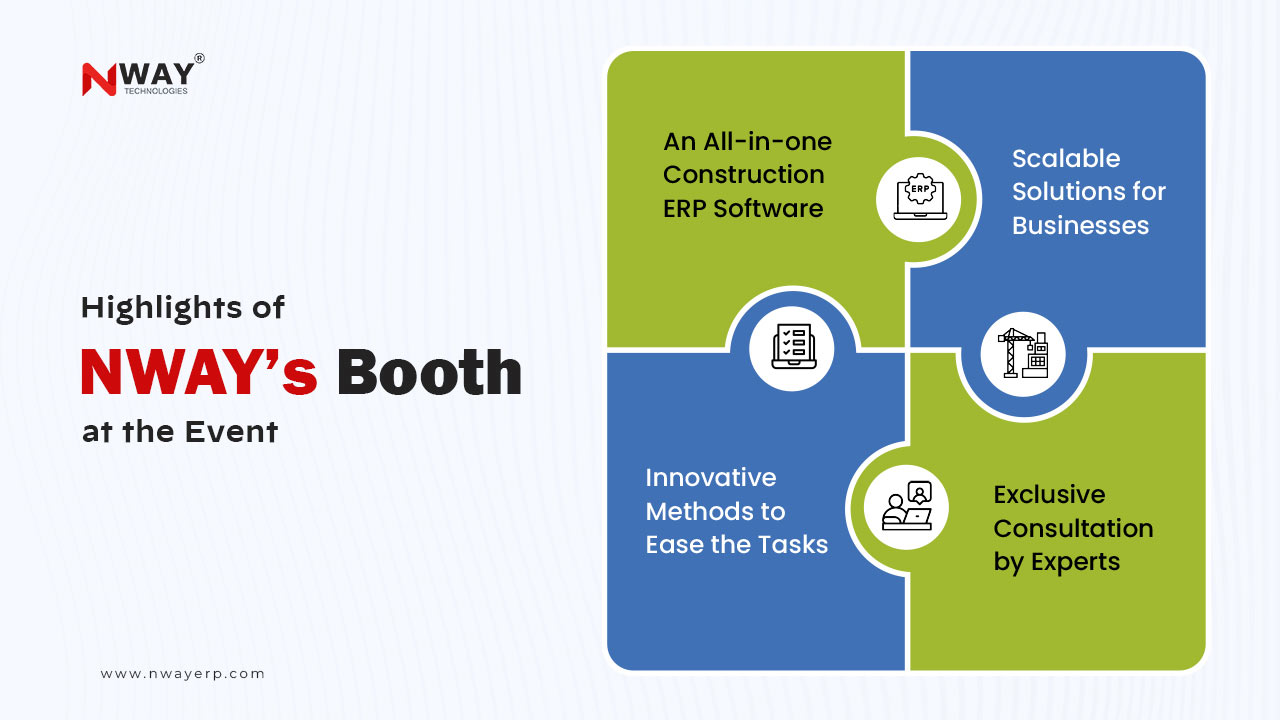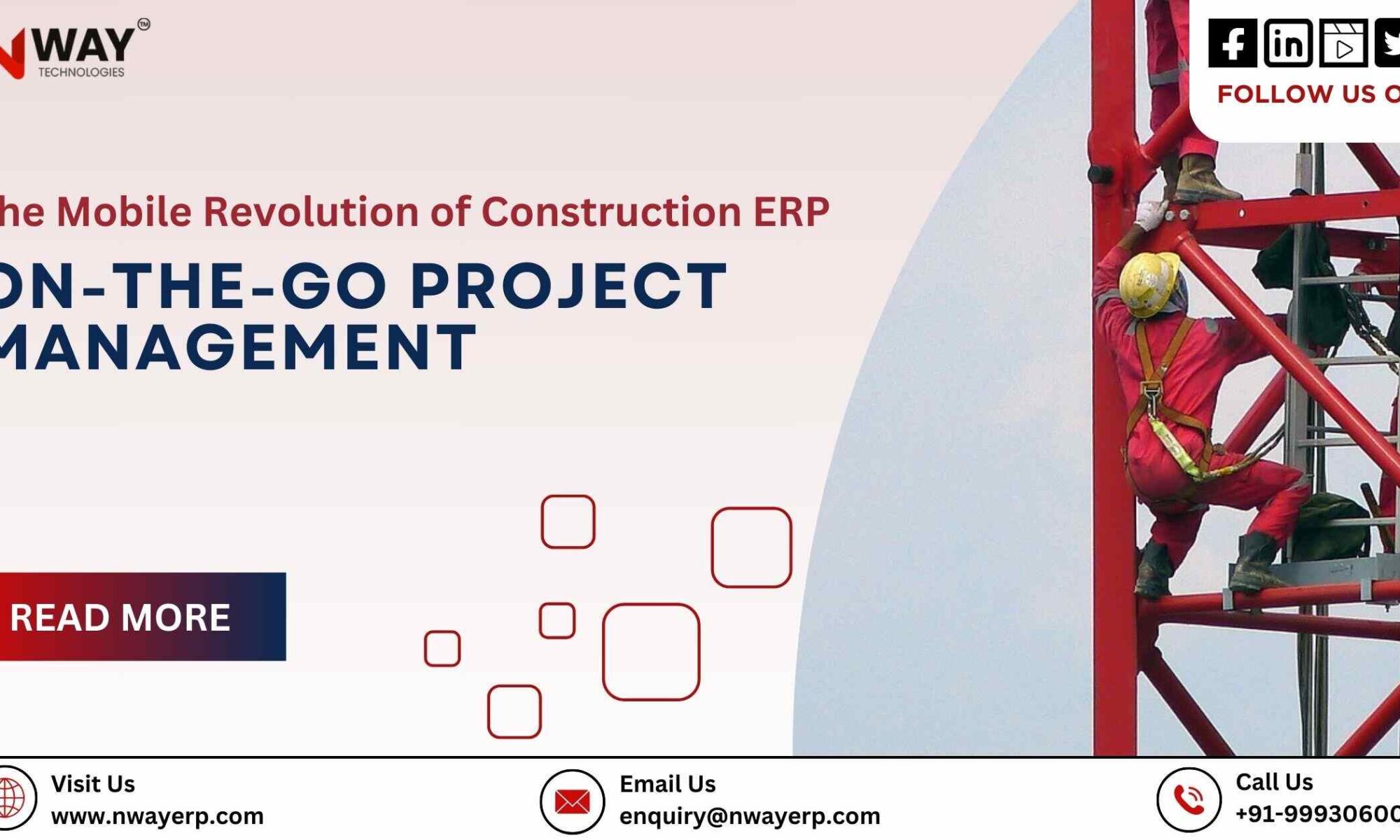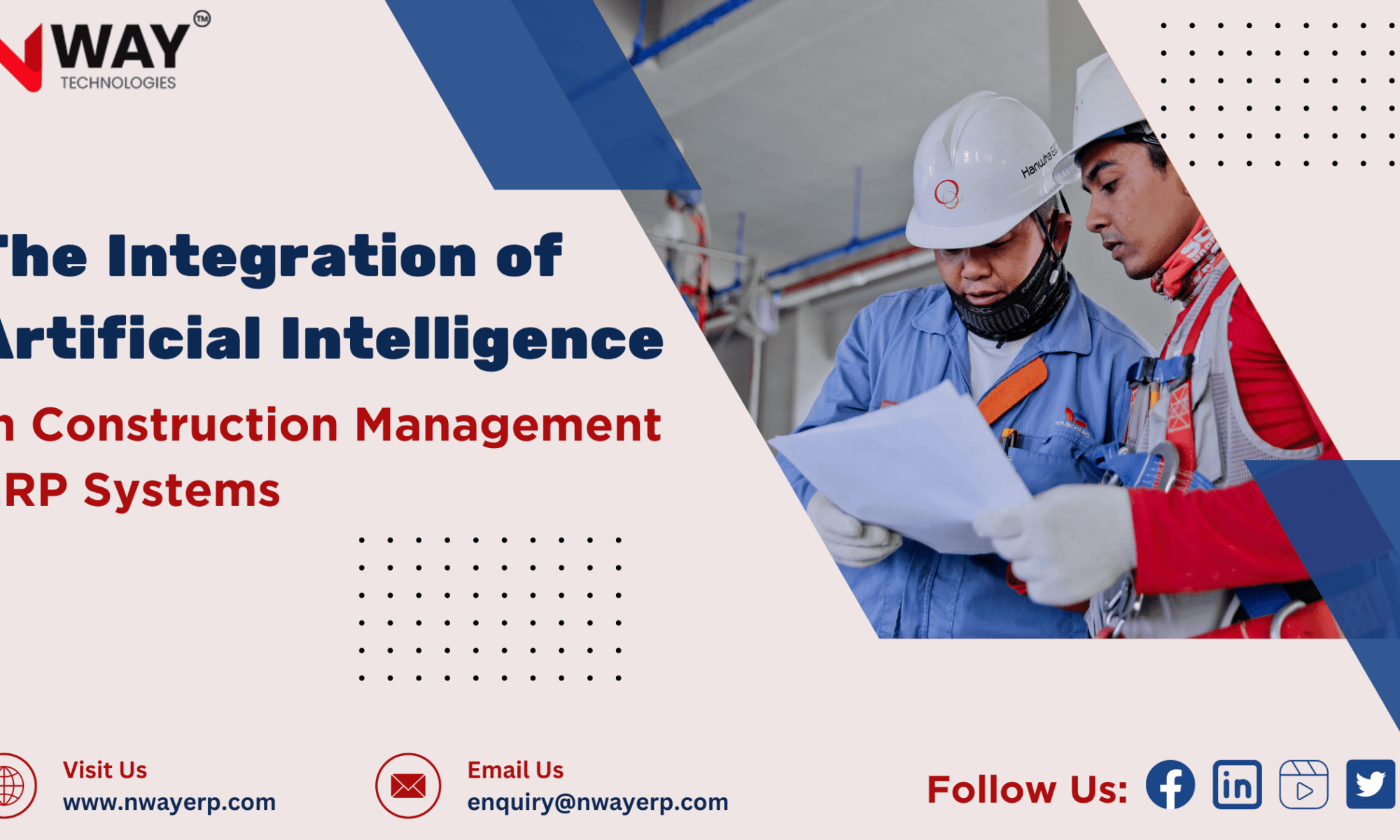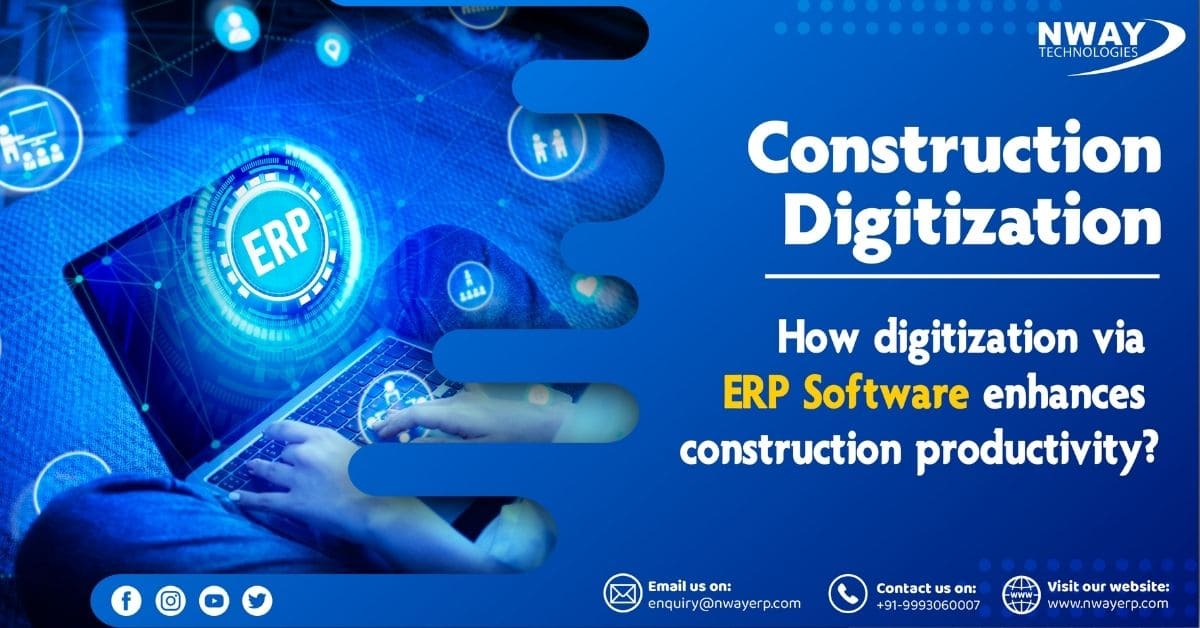In the rapidly growing construction industry, embracing technology is no longer optional – it’s a necessity. Mobile applications for construction ERP software are transforming how projects are managed, improving efficiency, and driving better outcomes.
Here are the key benefits of integrating a mobile application with your construction ERP Software:
01. Real-Time Data Access
With mobile applications, stakeholders like contractors, managers, project managers, and supervisors have instant access to critical project data, anytime and anywhere, according to the access required and given to them. This also ensures:
Updated information for field workers and office staff.
Reduced delays caused by outdated or inaccessible data.
Improved decision-making through accurate, real-time insights.
Enhanced client reporting and transparency by providing up-to-date progress reports and metrics.
02. Enhanced Communication
Seamless communication between on-site and off-site teams is essential for successful project execution. A mobile ERP app facilitates:
Instant messaging and notifications.
Easy sharing of updates, reports, and images.
Reduced communication gaps and misunderstandings.
03. Streamlined Operations
From managing resources to tracking project timelines, a mobile ERP application streamlines operations by:
Automating routine tasks such as attendance tracking and inventory management.
Allowing on-site updates for progress tracking and resource allocation.
Providing tools for scheduling and workflow management.
04. Improved Resource Management
Efficient resource utilization is crucial in construction. A mobile ERP helps by:
Offering real-time tracking of equipment and materials.
Providing insights into workforce allocation and performance.
Tracking from anywhere and anytime helps you ensure optimal use of resources and reduced wastage.
05. Better Compliance and Documentation
Construction projects often require strict adherence to efficiency. A mobile ERP simplifies compliance by:
Storing essential information, data, and documents for quick reference and access.
Enabling real-time updates to compliance checklists.
Providing instant alerts for non-compliance or safety issues.
06. Cost Savings
By reducing inefficiencies and preventing costly errors, a mobile ERP app significantly lowers project costs.
It helps achieve this by:
Minimizing manual data entry and paperwork.
Reducing delays and rework through better planning.
Offering insights for effective budgeting and cost management.
Cutting travel expenses by enabling remote access to project data and approvals.
Preventing on-site errors through real-time updates and notifications. It also provides effective better budgeting and cost management.
Preventing on-site errors through real-time updates and notifications.
07. Enhanced Collaboration
A mobile ERP app fosters collaboration among stakeholders by:
Enabling shared access to project data and updates.
Supporting integration with other tools and platforms.
Allowing seamless coordination between contractors, clients, and suppliers.
Providing shared dashboards for real-time visibility of project status.
Attaining real-time editing capabilities for documents and schedules.
08. Increased Productivity
The construction industry thrives on efficiency, and a mobile ERP app boosts productivity by:
Allowing on-the-go updates and approvals, speeding up workflows.
Reducing the need for physical and back-and-forth meetings, communication, and saving time.
Empowering field teams with the tools they need to perform effectively.
Facilitating faster approval workflows and minimizing downtime, ensuring seamless project progress.
09. Scalability & Flexibility
As projects grow in size and complexity, a mobile ERP application provides the scalability and flexibility needed to adapt by:
Supporting multiple projects simultaneously.
Customizing features to meet unique project requirements.
Ensuring smooth integration with existing systems and workflows.
10. Data Security
Construction ERP Software Mobile Applications provide robust security measures that ensure maximum safety for any sensitive information. It includes:
Secure access protocols to prevent unauthorized usage.
Data encryption that prevents information during transmission.
Regular updates to safeguard against unauthorized sources and further data loss.
Conclusion
A Construction ERP Software Mobile App is a game-changer for the industry. It not only bridges the gap between field and office operations but also ensures that projects are completed on time, within budget, and to the highest quality. By leveraging the best of their ability mobile ERP software can stay ahead of the competitive market and drive long-term success.
So how are you managing your construction projects? Are you using construction ERP software that can help you streamline all your construction projects from anywhere and anytime? If not this is the right time to opt for good software that can simplify all your construction operations. Contact us now and one of our experts will help you understand the use of construction ERP software and its implementation, processes, and benefits.
